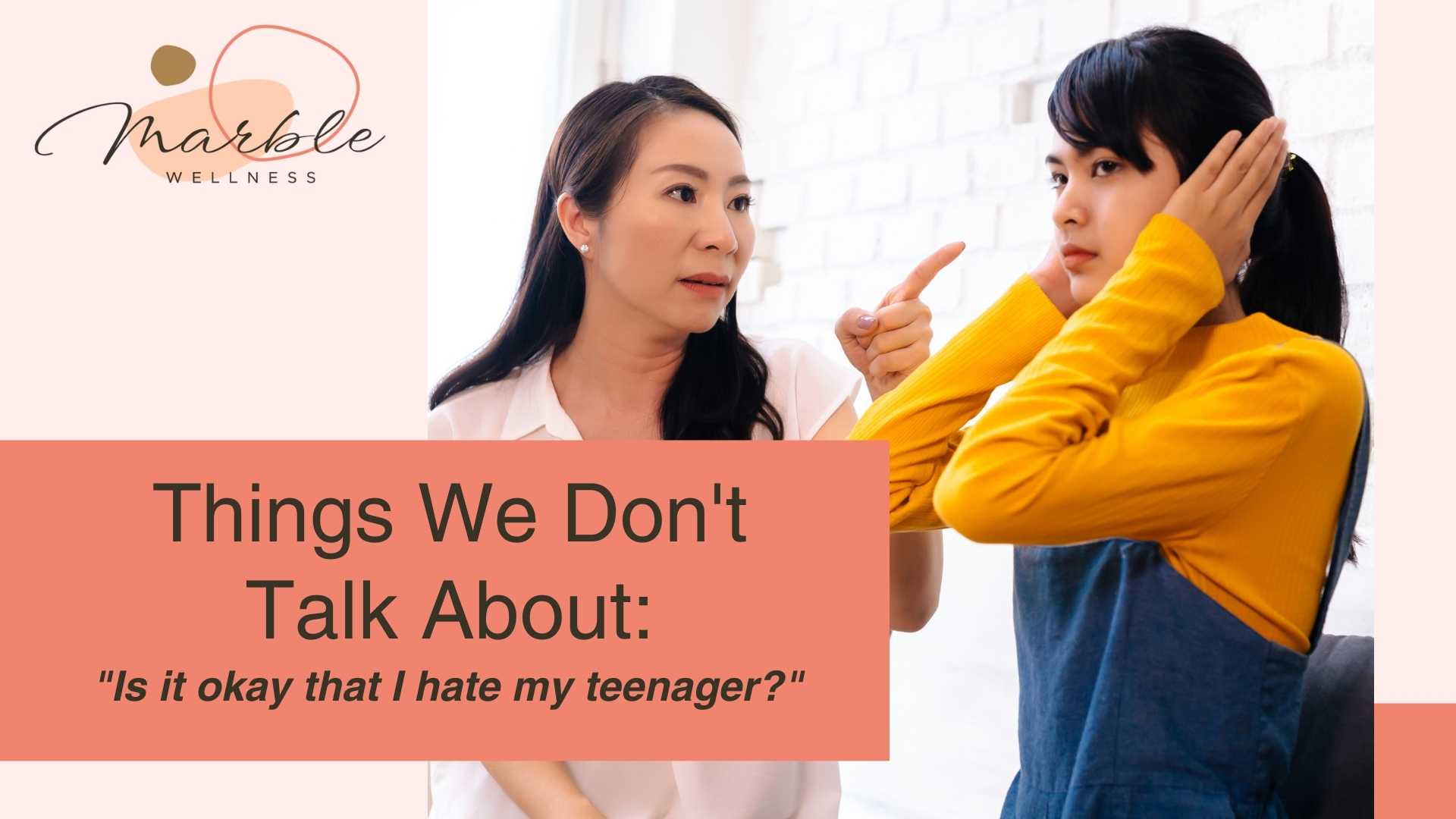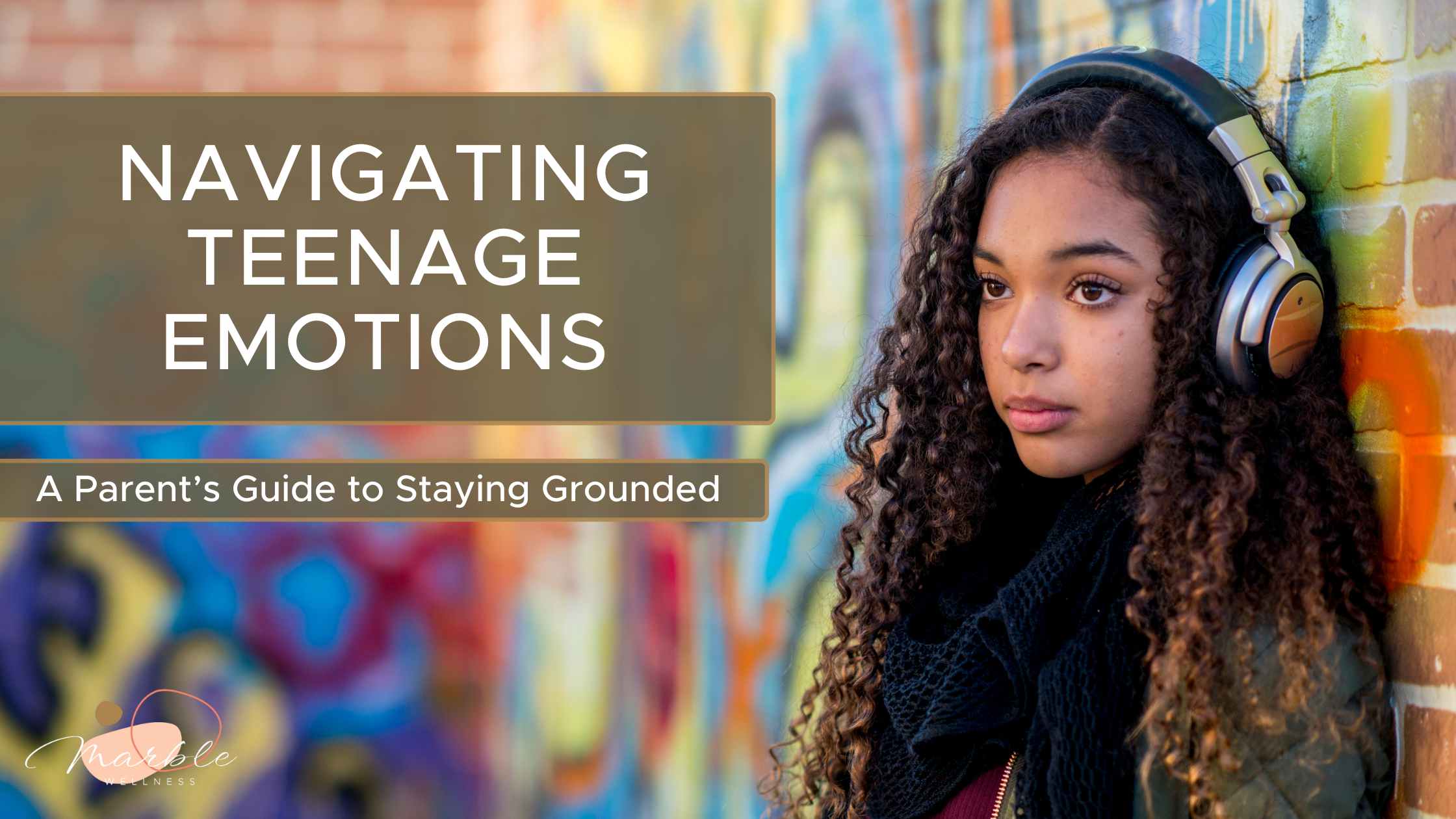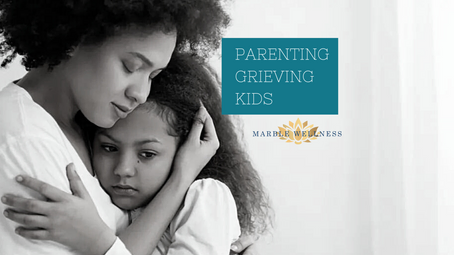It’s a question that might feel uncomfortable to ask—maybe even shameful—but it’s one that a lot of moms have asked themselves. “Is it okay that I hate my teenager?”
The truth is, if you’re feeling overwhelmed, mistreated, or even downright frustrated with your teen, you’re not alone. Parenting teenagers comes with a whole different set of challenges, and sometimes, those challenges can bring up intense feelings of hurt, anger, and even resentment. But here’s the thing: these feelings don’t mean you’re a bad mom, nor do they mean you’ve somehow failed your child. They simply mean that you’re a human being, and you’re navigating one of the most complex phases of parenting.
It’s Not About “Hating” Your Teen—It’s About the Emotional Chaos
Let’s just start by putting something out there: it’s okay to feel conflicted. Parenting a teen is messy, and their behavior—rude remarks, emotional outbursts, social withdrawal—can often feel like a direct attack. But here’s where we need to remind ourselves of a fundamental truth: you don’t hate your child. It’s not about your child as a person, but the way you’re being treated in the moment. It’s frustrating when you love someone so deeply, yet the way they’re treating you feels distant, dismissive, or downright hurtful.
The emotional rollercoaster that comes with parenting a teen can feel extreme. One minute, they might be telling you to leave them alone, and the next, they might come to you for comfort or advice. The highs and lows can be dizzying. But that emotional chaos—while challenging—doesn’t mean you’ve failed as a parent. It’s part of the process.
Understanding What’s Really Going On: Your Teen’s Developmental Stage
It helps to understand that a lot of your teen’s behavior is not personal—it’s developmental. Let’s break this down:
- Brain Development: The teenage brain is going through a massive transition. The prefrontal cortex—the part of the brain responsible for decision-making, impulse control, and understanding consequences—hasn’t fully developed yet. This means that your teen may be acting impulsively, without fully understanding the long-term impact of their actions. They may not have the same emotional regulation skills as an adult, and their reactions may seem out of proportion to the situation.
- Psychosocial Development: Teens are in the process of developing their own identities, which often means testing boundaries. They’re figuring out who they are outside of their family, and sometimes this means rejecting authority or acting in ways that feel rebellious. Their social circle and peer relationships often take center stage, and their need for independence can feel like a direct challenge to your role as a parent.
- Hormones: Ah, yes—hormones. Teenagers are flooded with hormones, which can trigger emotional extremes. It’s not just “moodiness” or “attitude” you’re dealing with, it’s biological. These hormonal fluctuations can lead to irritability, mood swings, and heightened emotional sensitivity. While it might not make it any easier to be on the receiving end, remembering that hormones are at play can help you feel a bit more empathetic and less personally attacked.
- Evolutionary Biology: From an evolutionary standpoint, adolescence is about preparing for independence. This means teens often push against their parents’ authority, not out of spite, but as part of developing the skills they need to be successful adults. Evolutionarily, this is a healthy, normal process—though it doesn’t make it any less painful for you as a mom!
The Emotional and Mental Toll on Moms of Teens
All of this said, it’s easy for moms to feel tired, underappreciated, and resentful during this time. The emotional toll of constantly feeling like you’re walking on eggshells around your teen can wear you down. On top of that, being a parent to a teenager means managing a whirlwind of social pressures, academic challenges, and parental responsibilities—all while your teen might seem to be completely unaware of the weight you’re carrying.
It’s also completely normal to feel like you don’t recognize your teen anymore. The person you knew seems to be disappearing, and a more distant, moody version has taken their place. This can trigger feelings of sadness, loneliness, or confusion. Why don’t they need you like they used to? Why are they shutting you out? These are questions many moms face, and feeling hurt is part of the process.
Validating Your Feelings: You’re Not Alone
Let’s be real—parenting teens is hard, and it’s okay to feel frustrated or even a little resentful. You’re doing your best, and sometimes your best doesn’t feel like enough. But here’s the thing: your feelings are valid. You’re not a bad parent for struggling with your teen’s behavior, and you’re not alone. Many moms are going through the same thing, and it’s important to give yourself grace during this season.
Coping Skills for Moms of Teens: Navigating the Emotional Chaos
Here are a few coping strategies to help manage the emotional chaos and better understand your teen’s developmental stage:
- Manage Your Own Emotions: When your teen’s behavior triggers a strong reaction in you, take a moment to pause and breathe. Responding from a place of calm rather than reacting impulsively will create space for healthier communication. It’s okay to walk away for a few moments to regain your composure.
- Set Boundaries: It’s important to set clear and respectful boundaries with your teen. This doesn’t mean being overly rigid, but having some ground rules in place—like no yelling, no insults, and respectful communication—can help create a safer environment for both you and your teen.
- Empathize, But Don’t Enable: Remember that your teen is struggling with their own emotions and developmental challenges. Empathize with their experience, but don’t let them off the hook for treating you poorly. You can empathize while still maintaining your boundaries.
- Open Communication: Try to create a space where both you and your teen feel comfortable sharing thoughts and feelings. Sometimes, just being there to listen can help your teen feel heard, which can lead to less frustration on both sides.
- Take Time for Yourself: Parenting a teen is emotionally exhausting, and it’s important to take care of yourself. Whether it’s a quiet cup of coffee in the morning or a few moments to read before bed, make sure you’re prioritizing self-care. You can’t pour from an empty cup.
- Seek Support: If you’re struggling to cope, consider seeking professional help through therapy. Counseling for moms of teens can provide a space to process emotions, learn new parenting strategies, and rebuild your relationship with your teen.
Remember: You’re Doing Great. Really!
Parenting a teenager is no small feat, and there’s no perfect blueprint. You’ll have moments of frustration, anger, sadness, and confusion—and that’s okay. What matters is that you’re willing to work through those emotions and continue supporting your teen. With patience, self-compassion, and a little bit of understanding, you’ll get through this phase together. It won’t always be easy, but it will get better. And even though it may feel like it, you’re not alone in this. You’re doing great, mom!
Start Therapy in the St. Louis Area
If you live in the St. Louis metro area and are ready to improve your mental health, our expert St. Louis therapists are here to help. Not only do we have a team of therapists in Ballwin, MO, but we have also recently expanded to serve the Lake St. Louis and Wentzville area! Reach out to our Client Care Coordinator today to discuss your therapy options, both in-person and via online therapy in Missouri.
Contact Us!
Learn About Our Group Offerings

Additional Counseling Services at Marble Wellness in St. Louis, MO
Marble Wellness Counseling services are designed to help set you on a path of living a more fulfilled, calm, and happy life. Our St. Louis area therapists have a variety of training backgrounds and areas of expertise. We specialize in anxiety, depression, grief, chronic illness, therapy for men, couples, and maternal overwhelm. Our practice also helps new moms with various postpartum concerns, moms in the thick of parenting, and moms with teens. We can also chat from wherever you are in the state with online therapy in Missouri. No matter where you are in your journey, we are here to help you thrive!



